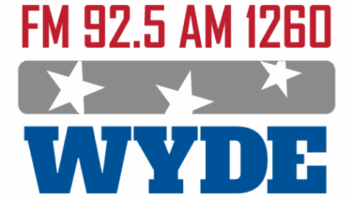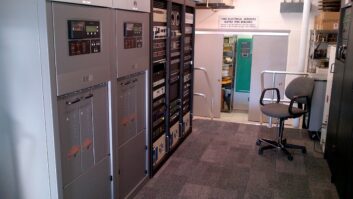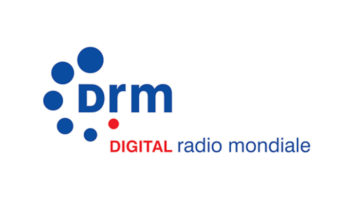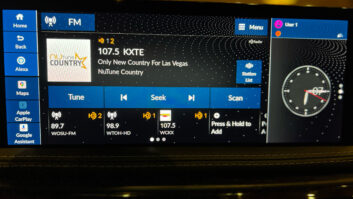
John Tesh said millennials ‘are sick and tired of being screamed at.’ Whether you know John Tesh for the music (more than 7 million albums sold), the journalism career (six Emmys and an AP award) or just his stomach-tickling appearances on Conan O’Brien, in which he lampooned himself (in satirical segments like “When Teshes Attack” and “Tesh Secrets”), one thing is certain about this year’s NAB Show Radio Luncheon keynote speaker: The towering blond pianist and media mogul knows how radio works.
Tesh recalls coming of age in the business of small-market news. At a job right after graduating college (in 1974), he says, “You had to go out and you had to record interviews with people on a recorder that was the size of a backpack.” He told RW he remembers using a compressor to make the sound louder. There was a physicality to editing back then.
These experiences later influenced the curriculum of a course he taught at the New School in New York, about how to become “unfireable.” One of the lessons: Immerse yourself in every aspect of the profession, if you want to be a leader in that field.
“I know how to do everybody’s job, at least technically, at the office. I’m not the best at it, but I know how the technology interfaces. It’s an important lesson for radio now. As the business is changing, you really need to know about all the social media stuff. You should know how to go out on sales calls.”
FORMER ENGINEER
John Tesh’s radio show “Intelligence for Your Life” (he wrote a New York Times bestseller by the same title) reaches a reported 8.2 million listeners per week in the United States, Canada and the U.K., with advice on topics like health and wellness, relationships and finances.
Starting as a physics and chemistry major at North Carolina State when he was 18, Tesh said he “got bit by the radio bug” by way of the campus radio station, where he worked a job as an assistant engineer. (Fun to imagine him today as a director of engineering.)
Eventually, he switched his major to television and radio and landed a weekend gig at WKIX(FM) in Raleigh, “about the time that Rick Dees was there.” Eager to work his way up, Tesh made a demo for the station, but was told to gain more experience and come back later.
So he went back and made another demo, only this time, “I pretended to be all the announcers,” he said. (While recounting how he recorded a fake news show in which he played the correspondents and DJs and everyone on-air, Tesh shifts his voice and recreates the different personas he invented.)
“I made another reel tape and dropped it off at their doorstep at like 2 in the morning, and about two days later I got a phone call and it was just laughter on the other end: ‘How did you do this? Did you do this? If you want this job bad enough, you can work weekends.’”
While that kind of story may seem like a relic of the good old days, Tesh says that kind of persistence and creative thinking remains an important factor in making oneself stand out from so much white noise in radio, as another young man recently did at his own station.
“Nobody writes handwritten notes anymore,” Tesh said. “Do that and you’ll stand out … I sound like Steve Allen, but I don’t think people are willing to do that anymore.”
SEEK CONNECTION
Tesh, whose marketing company has numerous Fortune 500 clients, says it’s time to stop shouting at each other over the airwaves.
“There’s so much information out there right now that people really want an opportunity to connect with good information,” he said. Millennials “are sick and tired of being screamed at. I think they want to be encouraged. I’m not talking about happy talk. They don’t just want to be entertained.”
During the decade that Tesh was an anchor on “Entertainment Tonight,” he said, viewership may have been large but he never got the kind of personal response he does from regular radio listeners.
“I never had people come up and say, ‘Oh my god, you’re my guy.’ It was more like, ‘What is Phil Collins wearing?’”
Because of this personal connection fostered by radio, programmers shouldn’t feel pressure to create more channels or distribution systems in order to distinguish their stations.
“You have to be able to describe yourself as something that has heart,” he said. “I do a five-hour show every day and I read our social media — (listeners) are not talking about the music. They’re talking about the fact that they’re learning something. It’s why Delilah is popular, too.”
He points out that his 18-year-old daughter may text and use Facebook, but she also has a favorite radio station. “It’s the simplicity of turning your radio on and listening to a host with great music.”







